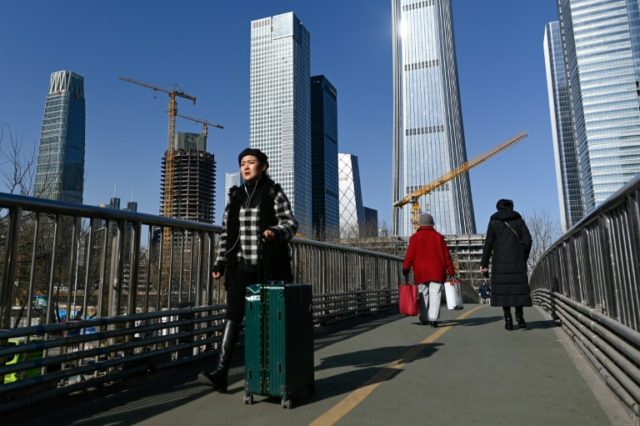China’s “social credit system,” a vast surveillance network that rates both companies and individual citizens for “good behavior” and has a variety of tools for punishing those who behave badly, is also proving useful for accumulating socioeconomic data.
A report released this week by China’s National Public Credit Information Center used data from the social credit system to determine that a large percentage of “untrustworthy businesses” are operating in China’s wealthiest regions.
The South China Morning Post summarized the findings on Friday:
Jiangsu, the country’s second largest provincial economy – 9.26 trillion yuan (US$1.37 trillion) – accounted for 16.7 percent of the discredited businesses that were added to the national blacklist last year, more than any other region.
[…] Guangdong is China’s most prosperous province, but is also home to 12.77 per cent of the total 3.59 million blacklisted firms. The southern province had a gross domestic product of 9.73 trillion yuan last year.
In third spot was Zhejiang, the prosperous province just south of Shanghai, while the capital city of Beijing was ranked fifth. These places together contributed slightly more than 30 percent of China’s gross domestic product (GDP) last year.
By naming and shaming the millions of Chinese businesses and individuals on the annual blacklist, Beijing hopes to boost “trustworthiness” in Chinese society. Under the system, each of its 1.4 billion citizens is expected to receive a personal trustworthiness score.
The discovery that scam artists prefer to operate near rich people with lots of money to spend is not exactly surprising, but as the SCMP explained, many of these “untrustworthy businesses” are actually “grey-market” operations that give well-heeled consumers in coastal China a taste of the relative freedom enjoyed by Hong Kong. Some of these firms played a role in China’s economic renaissance by helping buyers and investors “cut corners,” with their activities tacitly tolerated by local officials.
They also had a tendency to keep sloppy books and operate with dubious business models, so they found themselves blacklisted as Beijing clamped down on the grey market or tumbling into insolvency when the Chinese economy soured.
The social credit system is beginning to fire on all cylinders, which could make Chinese citizens much more nervous about dealing with “untrustworthy” businesses. The Associated Press reported on Friday that Chinese have now been blocked from purchasing airline tickets 17.5 million times and 5.5 million times from riding on trains because they had poor social credit scores. Individuals have been blocked from taking jobs, while companies can find themselves unable to apply for bank loans or be frozen out of government contracts.
The AP noted that negative social credit points can be doled out for offenses ranging from failure to pay taxes and violating government regulations to “offenses as minor as walking a dog without a leash.”
Under such a system, it would not be difficult for a company to slip into “untrustworthy” status. One of the criteria for blacklist status mentioned by the South China Morning Post is “bogus advertising,” which sounds like a much more expansive definition of actionable behavior than “fraud.”
The agency which compiled the report, the National Public Credit Information Center, is an arm of the National Development and Reform Commission, which is a leading player in China’s ambitious Greater Bay Area plan to unite semi-autonomous Hong Kong and Macau with that upscale province full of blacklisted firms, Guangdong.
It will be interesting to see if Hong Kongers agree with China’s definition of an untrustworthy company, and how they feel about getting plugged into the mainland’s social credit system, which seems inevitable given the level of cooperation between cities envisioned by the Greater Bay Area agenda. In preparation for the merge, residents of Hong Kong may wish to begin walking their dogs very carefully.

COMMENTS
Please let us know if you're having issues with commenting.